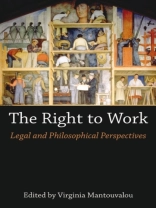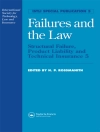The value of work cannot be underestimated in today”s world. Work is valuable
because productive labour generates goods needed for survival, such as food and
housing; goods needed for self-development, such as education and culture; and
other material goods that people wish to have in order to live a fulfilling life. A
job also generally inspires a sense of achievement, self-esteem and the esteem of
others. People develop social relations at work, which can be very important for
them. Work brings both material and non-material benefits.
There is no doubt that work is a crucial good. Do we have a human right to this
good? What is the content of the right? Does it impose a duty on governments to
promote full employment? Does it entail an obligation to protect decent work?
There is also a question about the right-holders. Do migrants have a right to work,
for example? At the same time many people would rather not work. What kind of
right is this, if many people do not want to have it? The chapters of this book
address the uncertainty and controversy that surround the right to work both in
theoretical scholarship and in policymaking. They discuss the philosophical
underpinnings of the right to work, and its development in human rights law at
national level (in jurisdictions such as the United Kingdom, Australia, Japan,
France and the United States) and international level (in the context of the United
Nations, the European Social Charter, the International Labour Organization, the European Convention on Human Rights and other legal orders).
Virginia Mantouvalou
The Right to Work [PDF ebook]
Legal and Philosophical Perspectives
The Right to Work [PDF ebook]
Legal and Philosophical Perspectives
购买此电子书可免费获赠一本!
格式 PDF ● 网页 388 ● ISBN 9781782254997 ● 编辑 Virginia Mantouvalou ● 出版者 Bloomsbury Publishing ● 发布时间 2015 ● 下载 3 时 ● 货币 EUR ● ID 4076145 ● 复制保护 Adobe DRM
需要具备DRM功能的电子书阅读器












